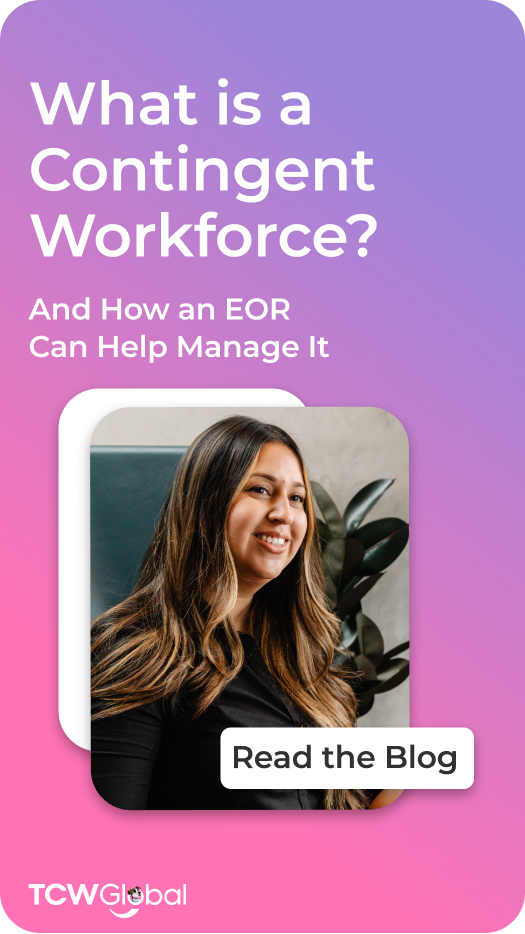Why You're Here!
Puerto Rico, known for its beautiful beaches, vibrant culture, and strategic location, is an attractive destination for businesses looking to expand internationally. TCWGlobal serves as your trusted partner in navigating the complexities of hiring in Puerto Rico, offering comprehensive solutions for building your contingent workforce.
With a population of over 3.2 million people, Puerto Rico boasts a skilled and bilingual workforce. From the historic streets of Old San Juan to the lush rainforests of El Yunque, the country offers a unique blend of culture and natural beauty.
When expanding your business into Puerto Rico, compliance with local regulations is crucial. TCWGlobal, as your employer of record, ensures that your contingent workforce is fully compliant, minimizing risks for your organization.
In addition to compliance, TCWGlobal provides personalized services tailored to your specific needs. Whether you require assistance with payrolling management, benefits administration, or any other aspect of HR, our team is dedicated to supporting you.
Partnering with TCWGlobal guarantees a seamless and successful expansion into Puerto Rico. Our expertise and local knowledge make us the ideal partner for businesses looking to establish a contingent workforce in this dynamic market.


